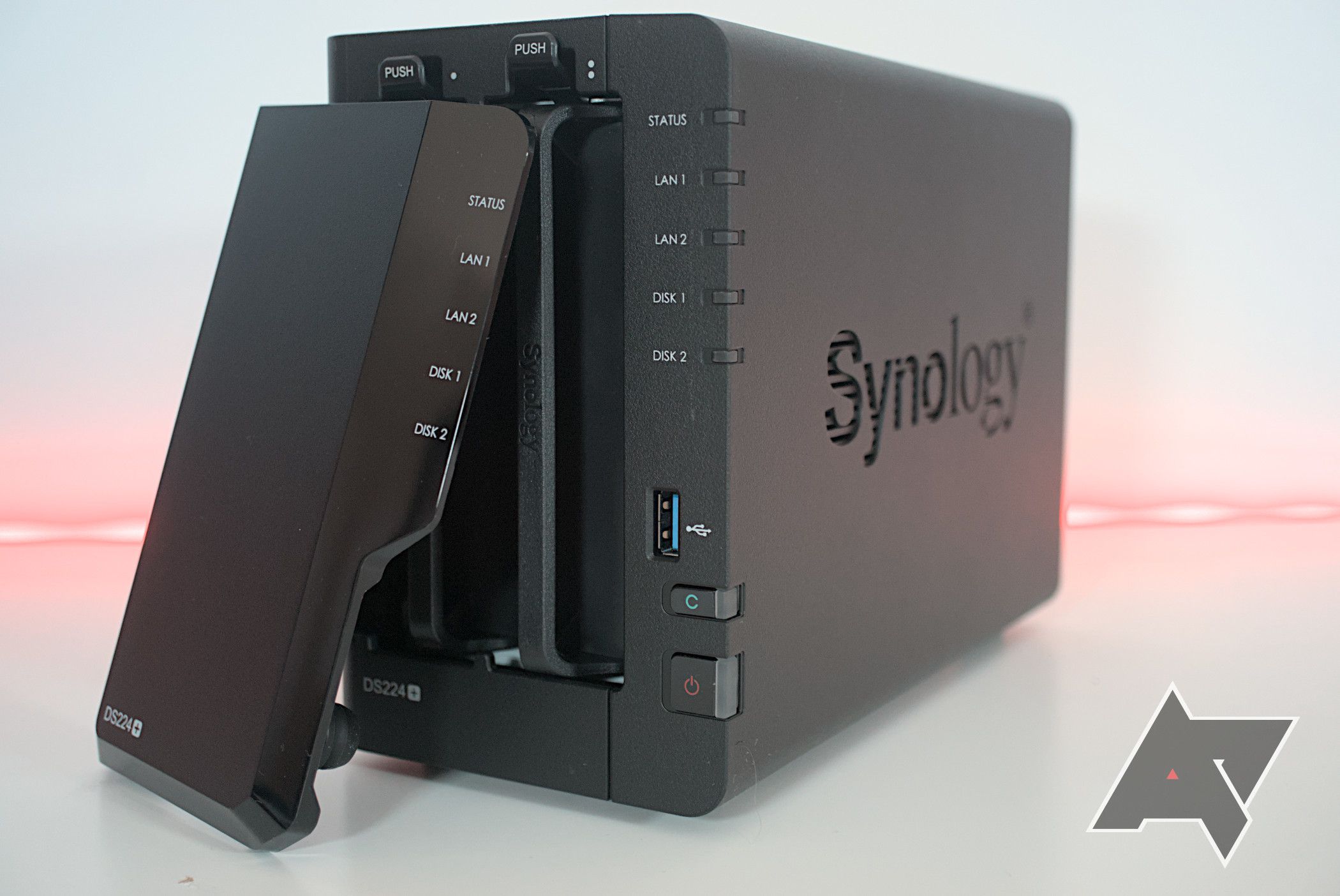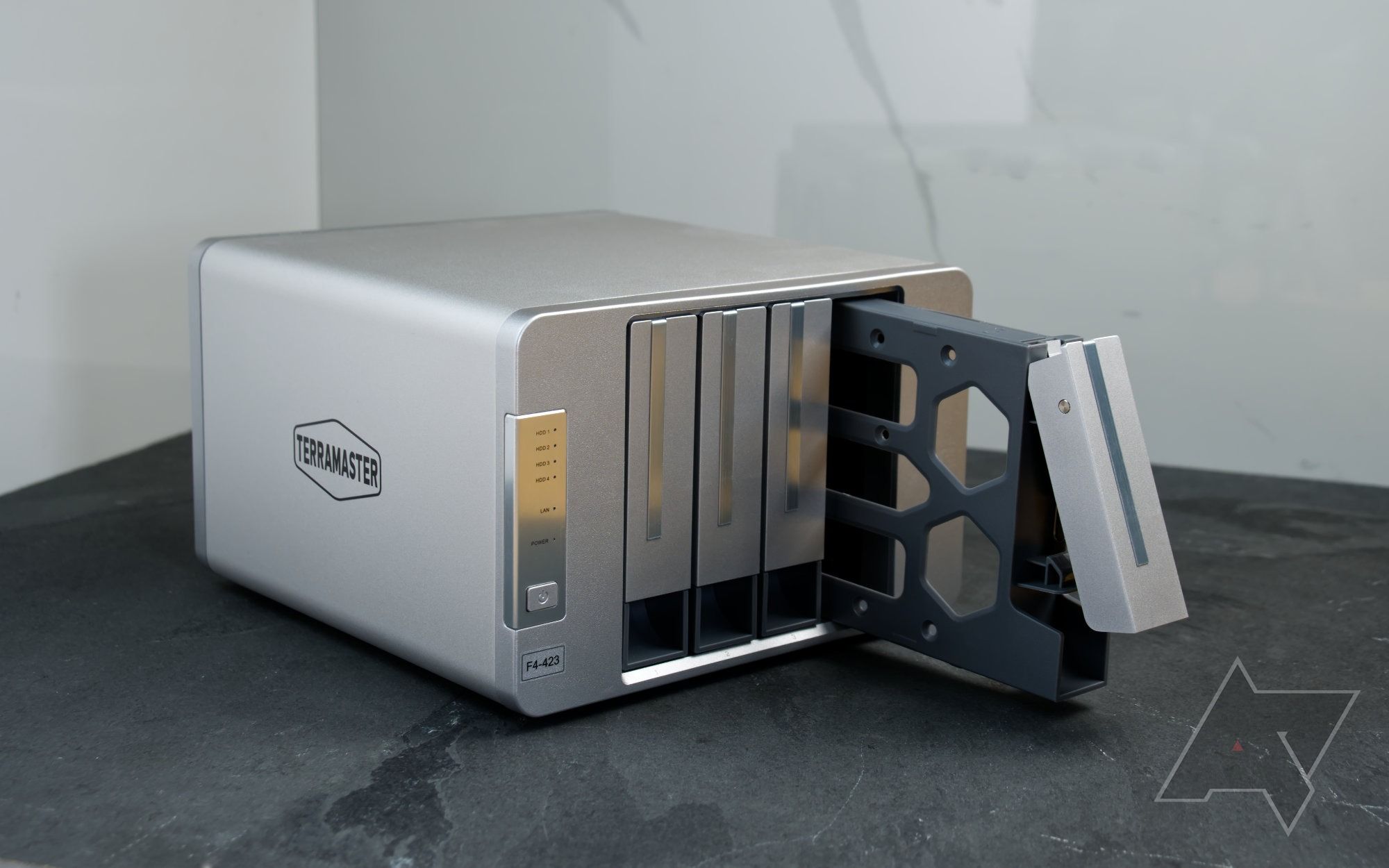NAS, or Network Attached Storage, as they are also known, are specialist computers that hold files and run services. A typical home NAS can support several users with many useful functions, providing an alternative way to secure personal data, rather than merely relying on cloud services.
These capabilities and the ability to take on new functions and extra storage make them ideal for a digital household, where they can provide a centralized media store, a location for backups, and even integrate with security cameras. These enclosures are what we consider to be the very best NAS for home use, with a focus on affordability and flexibility.
Top picks for best NAS for the home
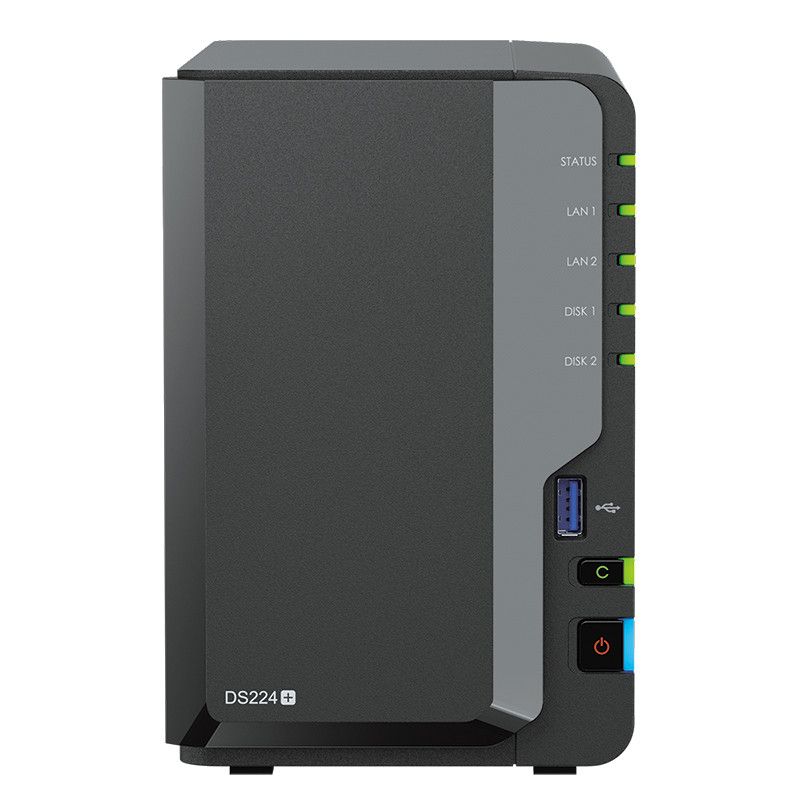
Synology DiskStation DS224+
The undisputed best NAS for even the busiest of households
The Synology DiskStation DS224+ is the direct successor to the popular DS220+, which was praised for the value it offered to consumers looking to buy their first enclosure. The DS224+ has an Intel Celeron processor, 2GB of DDR4 RAM, and support for Synology’s excellent DSM operating system and catalog of apps.
- Great value
- Excellent DSM OS
- Powerful Intel processor
- Only 1 GbE networking
- Limited upgrades
- No expansion support
The Synology DiskStation DS224+ is an excellent NAS, replacing the popular DS220+, which launched in 2020. While this newer enclosure didn’t arrive with all the upgrades many within the NAS community were hoping for, Synology hasn’t increased the MSRP over the predecessor, effectively offering a CPU upgrade for free. The Intel Celeron J4125 is a familiar processor and was present inside the Synology DiskStation DS920+. This enclosure was regarded as one of the best NAS for Plex, making this DS224+ a compelling choice for the home.
In our extensive testing, we found the NAS to perform just as well as its predecessor, with notable improvements in media transcoding and running more intensive apps. The faster processor can do all tasks with fewer system resources, allowing other tasks to be run or accounts to connect to the enclosure without slowing down overall performance. 2GB of DDR4 RAM should be enough to get started, but it can be expanded to a maximum of 6GB, as supported by Synology.
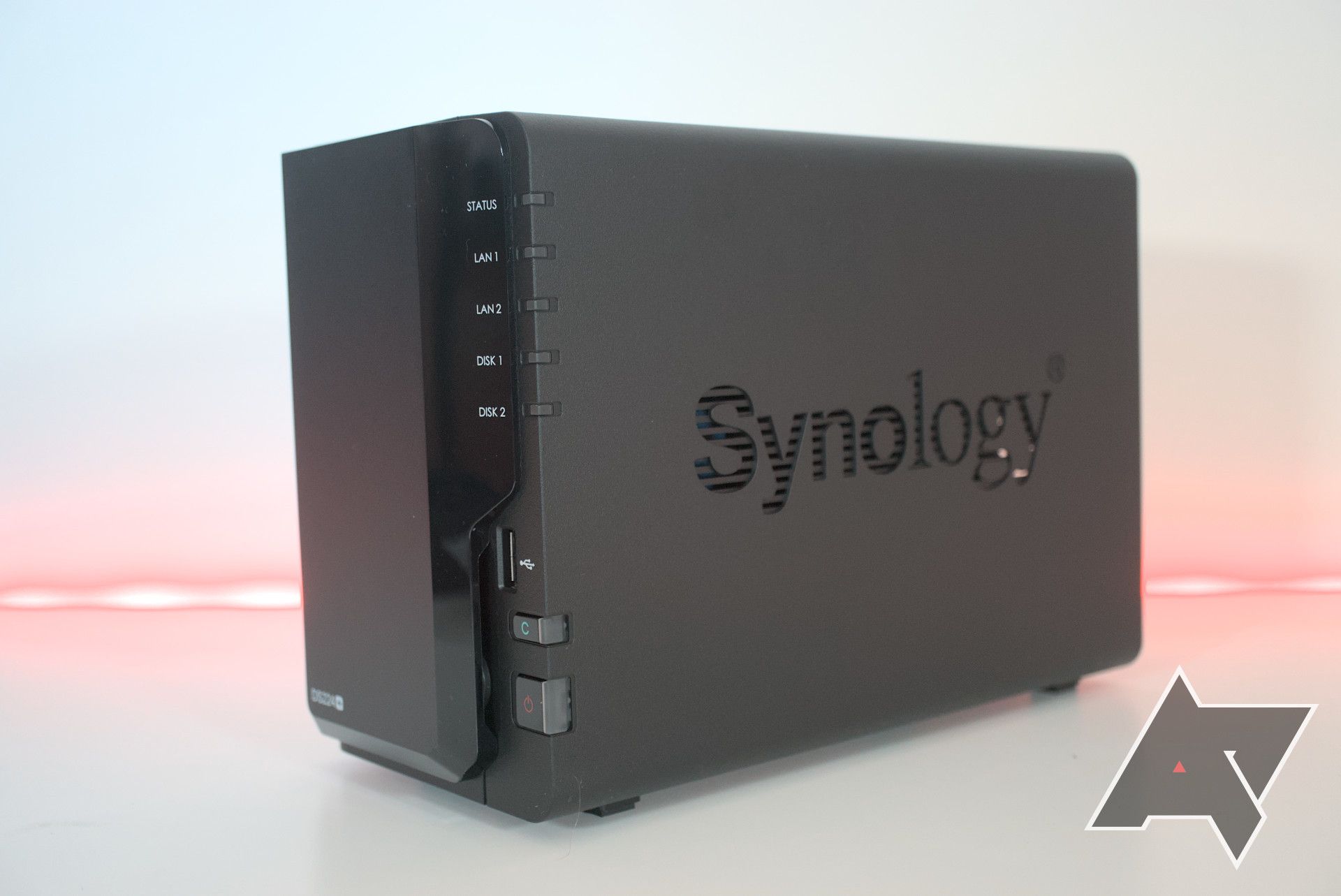
Synology DiskStation DS224+ review: Out with the old, in with the old
An important launch for Synology to retain its NAS crown.
There’s no way to connect an expansion unit or any M.2 slots. Once you’ve fully loaded this NAS with data, you’ll need to consider a replacement with more bays. However, it’s a good place to start for a home NAS with its good value and affordable price tag. Just remember to factor in the cost of NAS drives.
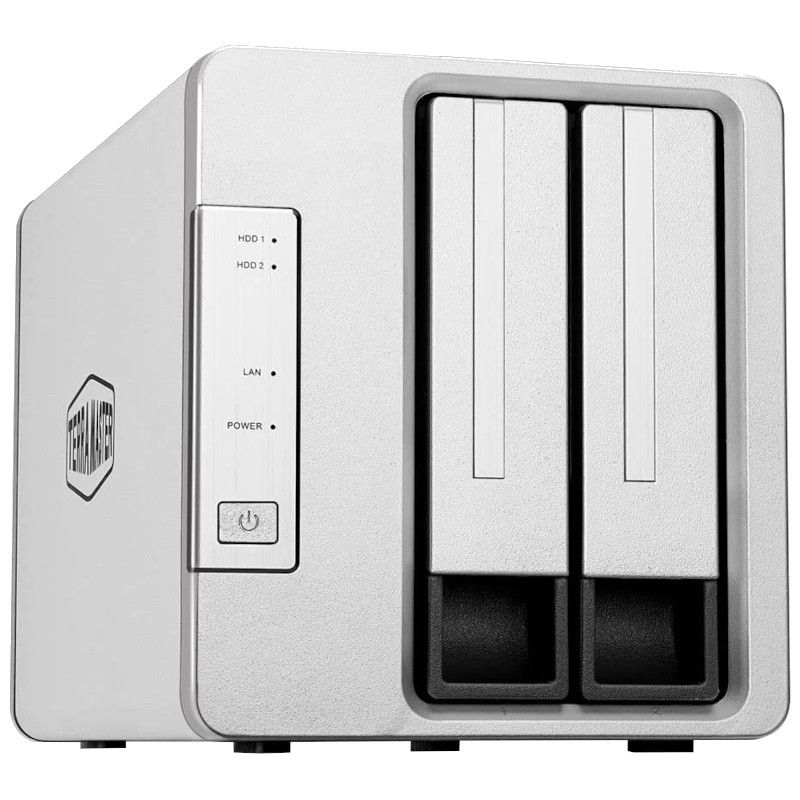
TerraMaster F2-223
A great substitute for the two-bay Synology NAS
The TerraMaster F2-223 is one of the more powerful two-bay NAS from the brand, rocking a capable Intel processor, two drive bays, multiple 2.5GbE ports, and a decent OS. This is a good value choice for homeowners seeking a serious enclosure.
- Great value
- Powerful Intel processor
- 32GB RAM capacity and M.2 slots
- Rougher OS UI
- Weaker app support
- HDMI port cannot be used for media
The TerraMaster F2-223 offers great value when compared against our top recommendation. The company priced this NAS at $260 while offering an Intel Celeron N4505 processor, supporting up to 32GB of RAM — which is more than some have in their desktop PCs — and M.2 slots for good measure. Not only is this NAS capable of handling a busier household, but it’s also a good pick for a smaller Plex Media Server installation. Don’t read too much into the available HDMI port, as TerraMaster has yet to enable this for media playback.
Still, the specifications and price make this a great pick for those wanting the best bang for their buck. The two 2.5GbE connections on the rear are ideal for taking advantage of additional network bandwidth or providing scope for infrastructure upgrades in the future. We found in our testing for review that the TerraMaster F2-223 only suffered from a limited app selection, resulting in the company relying on community-maintained offerings and a downgrade in cloud support compared to Synology.
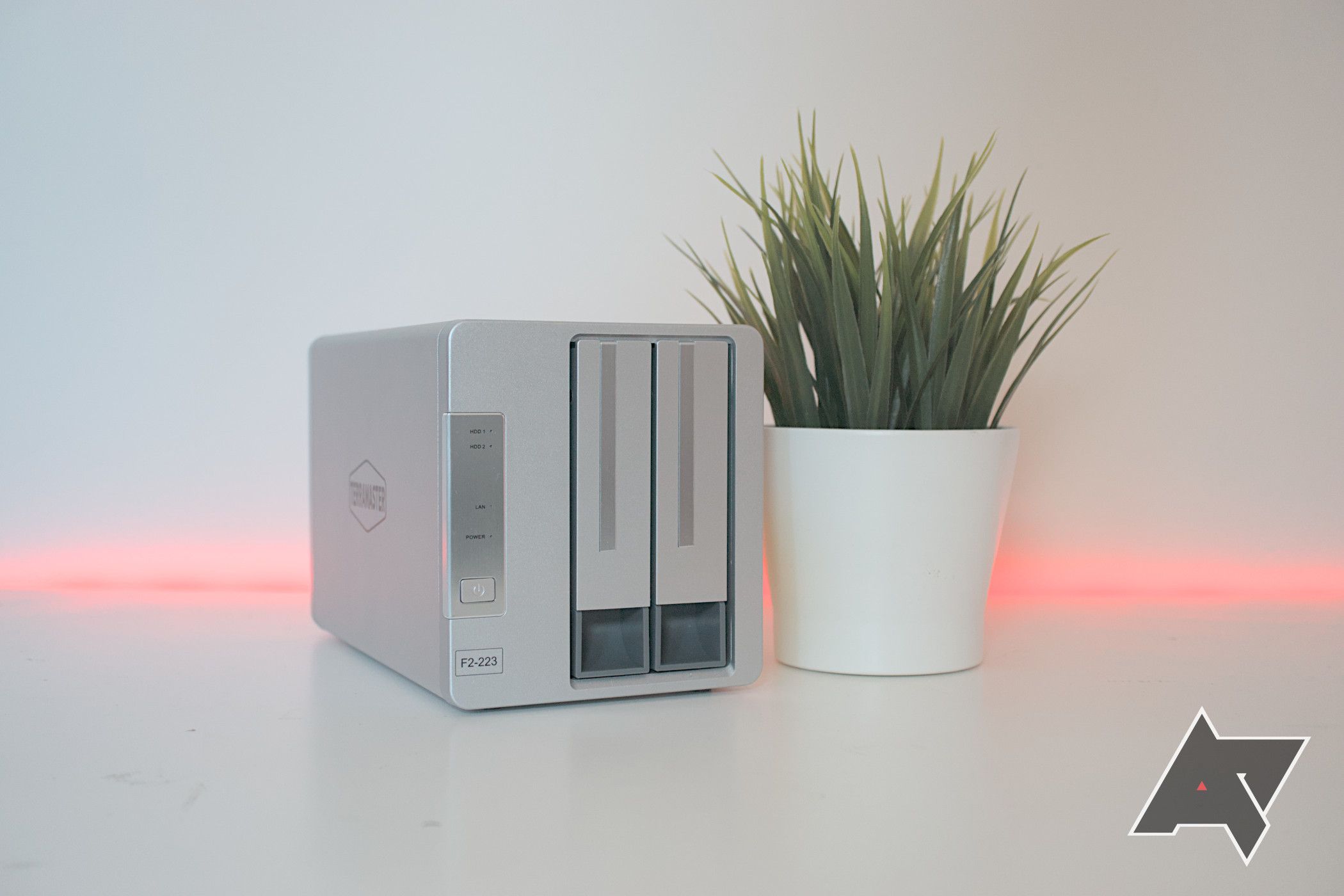
TerraMaster F2-223 review: Great value NAS with two bays and an Intel CPU
TerraMaster’s most affordable 2-bay Intel NAS offers excellent value.
If you’re searching for a NAS to be used as local storage without cloud-backed services, the TerraMaster F2-223 may be the better fit over the Synology DiskStation DS224+.

QNAP TS-464
The NAS to buy for running your own media server
The QNAP TS-464 is a brilliant and powerful NAS, rocking an Intel Celeron processor, 4GB of RAM out of the box, and even two M.2 slots and a single PCIe expansion slot. It has everything you need to run a Plex Media Server, including dedicated HDMI output.
- Powerful Intel processor
- HDMI output for TV
- Expansion support
- Pricey
Running Plex Media Server can be an intensive process for a NAS to handle, especially when multiple streams are running and transcoding is taking place. The better the processor, the easier the NAS can handle streaming. The QNAP TS-464 has the mighty Intel Celeron N5095 with four physical cores and a maximum burst speed of 2.9GHz. 4GB of RAM included with the NAS is ample system memory for running Plex and other services, and QNAP supports a maximum capacity of 16GB, which can transform this into a powerful home server.
As well as the processor and expandable RAM, QNAP includes two M.2 NVMe slots for not only adding caching support to improve performance but these can also be used to expand the storage pool with speedy SSD drives. There’s also a single PCIe 3.0 expansion slot for expanding the capabilities of the NAS, such as 10GbE networking. By default, the QNAP TS-464 includes two 2.5GbE networking ports for high bandwidth connections, an HDMI port for direct playback to a TV, and an IR sensor for remote control support.
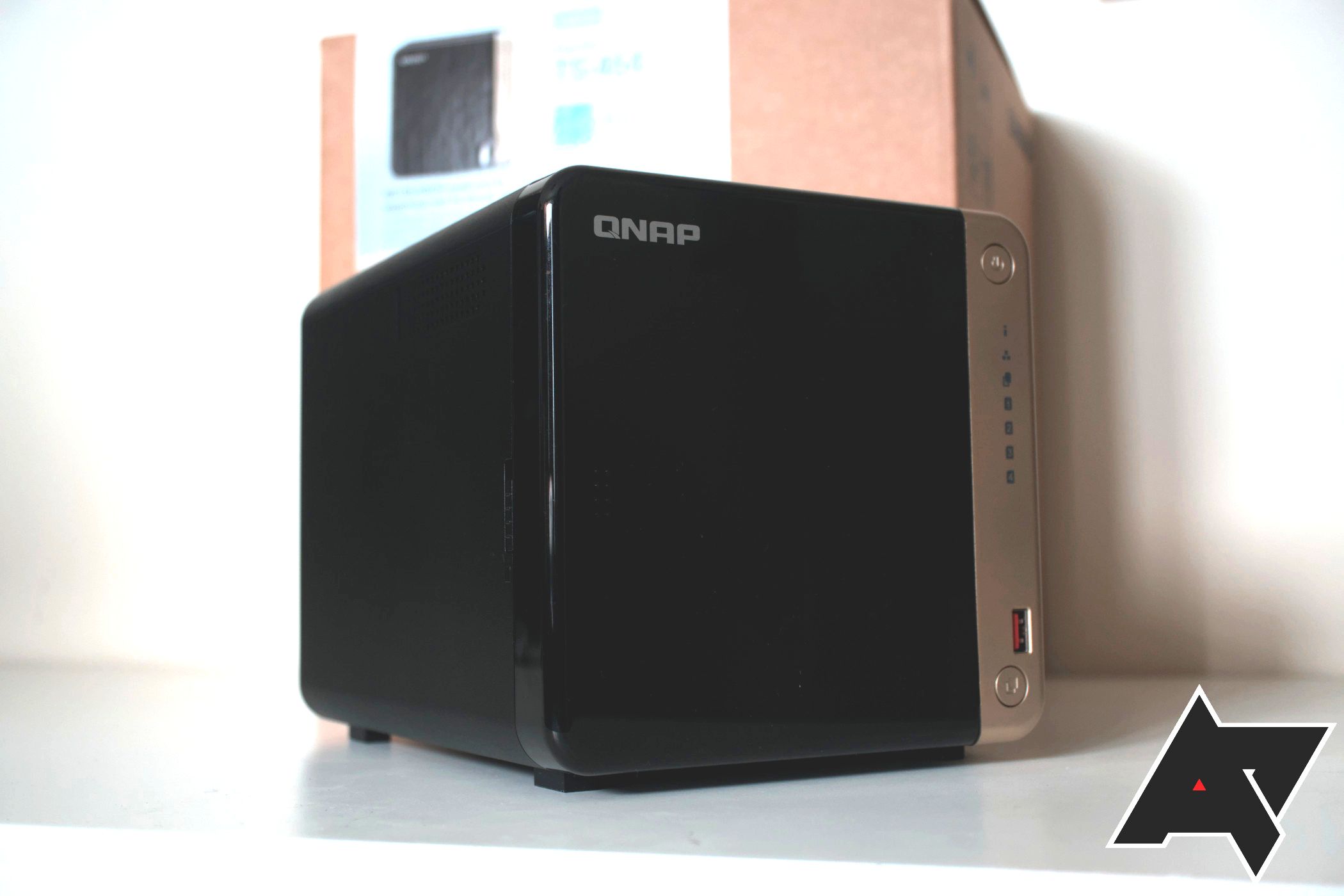
QNAP TS-464 review: One of the best compact NAS devices for running Plex
QNAP’s TS-464 has just about everything you’d need in a powerful compact NAS
We found the NAS to be perfectly suited to running Plex Media Server in our testing and found no issues with transcoding multiple 4K streams at various settings without experiencing sluggish playback. It could be considered overkill for general storage usage and is priced accordingly, but if you plan on running a media server, this NAS can help save you money in the long term by canceling streaming services. We also compared the Synology DiskStation DS923+ vs. QNAP TS-464, which shows the differences between the two NAS for running Plex.

Asustor Flashstor 6 FS6706T
Go all-out with flash storage for best performance
If you’re looking for a NAS with excellent transfer rates, look no further than the Asustor Flashstor 6 FS6706T. This thing is rapid, with six M.2 slots available for speedy SSD drives. There’s 2.5GbE networking, HDMI output, expansion support, and expandable RAM, making the FS6706T an impressive NAS.
- Six M.2 SSD slots
- Quieter and less power draw
- HDMI output for TV
- Pricey
- PCIe and LAN bottlenecks
- M.2 NVMe SSDs are expensive
Spinning mechanical drives offer the best value in terms of price-per-GB, but they’re loud, have motors that cause vibrations, and aren’t terribly reliable. Moving parts are more likely to break than immobile parts, so SSDs are becoming more commonplace in NAS. Asustor went above and beyond with the Asustor Flashstor FS6706T by offering no 3.5-inch drive bays. Instead, this enclosure houses six M.2 NVMe drive slots for rapid solid-state storage.
This opens access to many possibilities for creating a home server without noise, high power draw, and vibrations. Using SSDs may be more expensive than mechanical drives, especially when purchasing those designed for NAS usage, but it could be worth it if you desire the best endurance. This NAS would be a good match for storing data and running some services or creating a media streaming platform. The Intel Celeron N5095 is one we’ve seen in many of the best NAS, and 4GB of DDR4 RAM is a great starting point.

Asustor Flashstor 6 FS6706T review: A unique next-gen NVMe SSD NAS
Asustor’s new all-flash NAS enclosures are an interesting launch
Having access to six M.2 slots for speedy NVMe drives is great on its own, but this requires considerable bandwidth for it to be worth the investment. Unfortunately, as we highlighted in our review, it’s impossible to run six PCIe 3.0 drives at full speed and enjoy the highest data transfer rates. The CPU and two 2.5GbE network points act as a bottleneck for the available storage slots. It’s no deal-breaker and will only affect those seeking high speeds across the network. We found fully saturating the two 2.5GbE ports to be more than enough for the home or office.
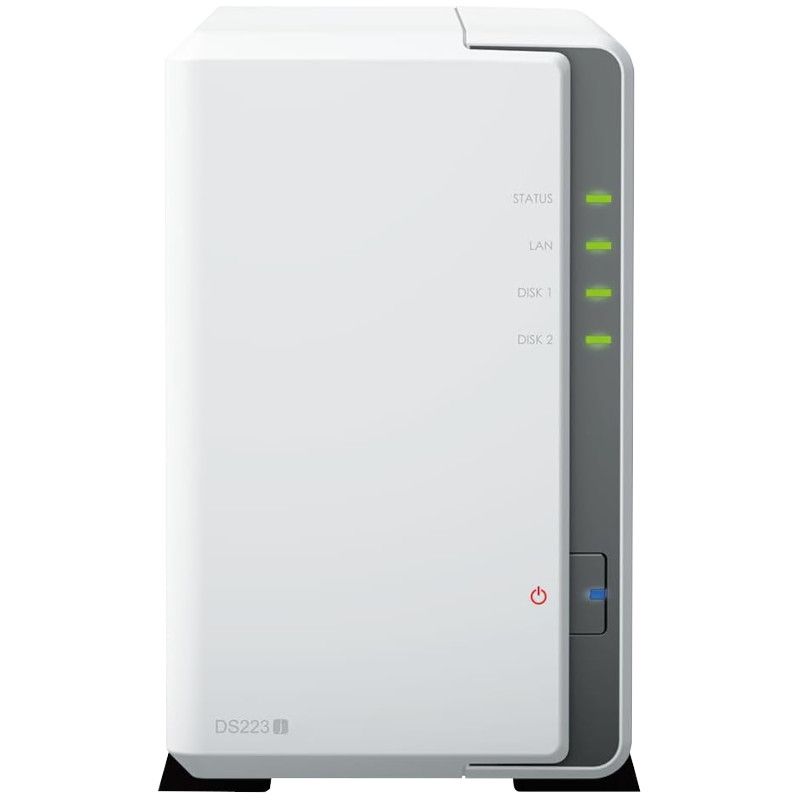
Synology DiskStation DS223j
A cheap NAS with access to Synology’s ecosystem
Synology’s DiskStation DS223j is the replacement for the popular and well-received DS220j, an affordable 2-bay enclosure with access to the company’s excellent DiskStation Manager (DSM) OS. Rocking a new ARM processor and more RAM, it’s a solid choice for those who simply wish to store files and backups.
- Affordable
- Great for beginners and file storage
- Access to DSM and Synology apps
- No expansion support
- Weaker ARM processor
- Only a single 1GbE connection
There’s little reason to consider anything other than the Synology DiskStation DS223j for a NAS that won’t cost much. This enclosure costs less than $200, yet manages to house two 3.5-inch drive bays for up to 40TB of raw storage capacity. This makes it the ideal NAS for homes and NAS beginners where more intensive apps such as Plex Media Server will not be installed. Streaming media with this enclosure is possible, but transcoding is out of the question due to the ARM processor.
Synology made this NAS affordable by using a Realtek RTD1619B processor. It’s an ARM chip that packs less punch than its Intel Celeron counterparts. This does mean the enclosure draws less power and should run cooler. 1GB of DDR4 RAM is installed, and this is all you’ll be able to use, as there’s no option to expand it. Like all other Synology NAS enclosures, the DS223j runs DiskStation Manager (DSM), providing access to the best-in-class operating system.
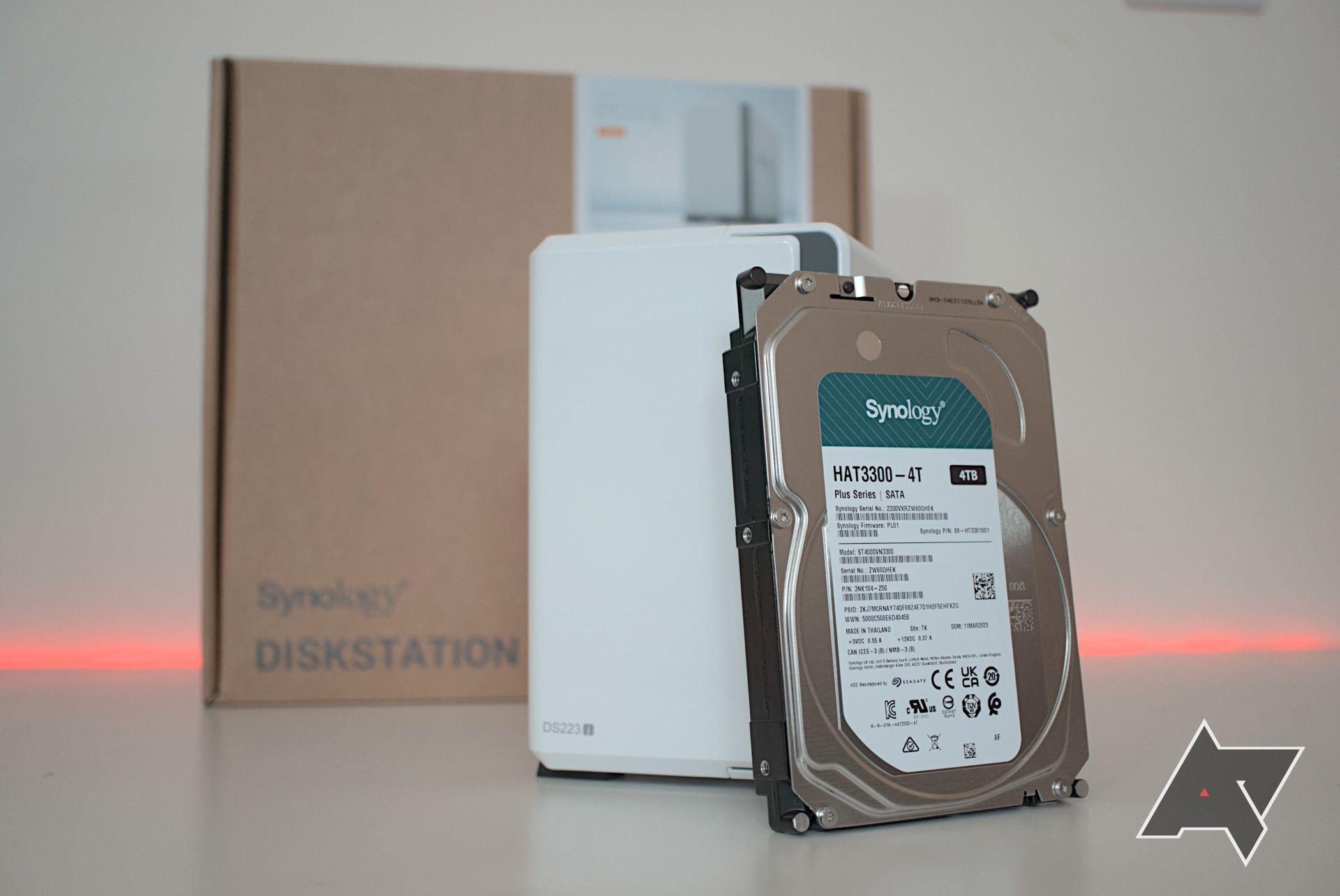
Synology DiskStation DS223j review: Another great budget-friendly NAS for storage
Taking Synology’s new super-affordable two-bay NAS for a spin
We found the NAS to be an excellent budget-friendly enclosure with only a few drawbacks when factoring in its low price. First, there’s the issue of limited system resources. 1GB of RAM may not be enough for busier households with multiple accounts attempting to perform various NAS-related tasks. The CPU isn’t the most powerful in an enclosure, either. There’s no expansion support and a single 1GbE connection to the network can quickly become saturated. Still, the DS223j is a good, affordable NAS for most homes.

TerraMaster F4-423
A perfect mix of power and affordability
TerraMaster’s F4-423 might not offer the same depth and breadth of features as options from more established competitors, but it’s a capable and reasonably priced option that’ll do everything most users need it to.
- Powerful Intel processor
- Up top 32GB RAM and M.2 slots
- Excellent value
- Rougher OS and weaker app support
- M.2 SSD slots cannot be used for storage
- HDMI port cannot be used for media
We recommend the mighty TerraMaster F4-423 as the best NAS in terms of value. It’s not as affordable as the Synology DiskStation Ds223j, nor TerraMaster’s own F2-223, but this is quite the enclosure. The F4-423 has four drive bays, much like the QNAP TS-464. There’s a powerful Intel Celeron process inside with 4GB of DDR4 RAM out of the box, which can be expanded up to a whopping 32GB. Two M.2 NVMe slots are also present to improve overall system performance through data caching with SSDs.
We’re big fans of the TerraMaster F4-423, but we did come across its lack of advanced features when compared to other branded NAS. There’s also the issue of hardware upgrades, namely the RAM and SSDs, not being a straightforward process and requiring the removal of the outer shell. Then there’s the OS, which isn’t terrible, but it’s also not as refined as Synology, QNAP, and Asustor offerings. You can perform most tasks without issue, but it would be good to see TOS receive a visual upgrade to bring it up to par.
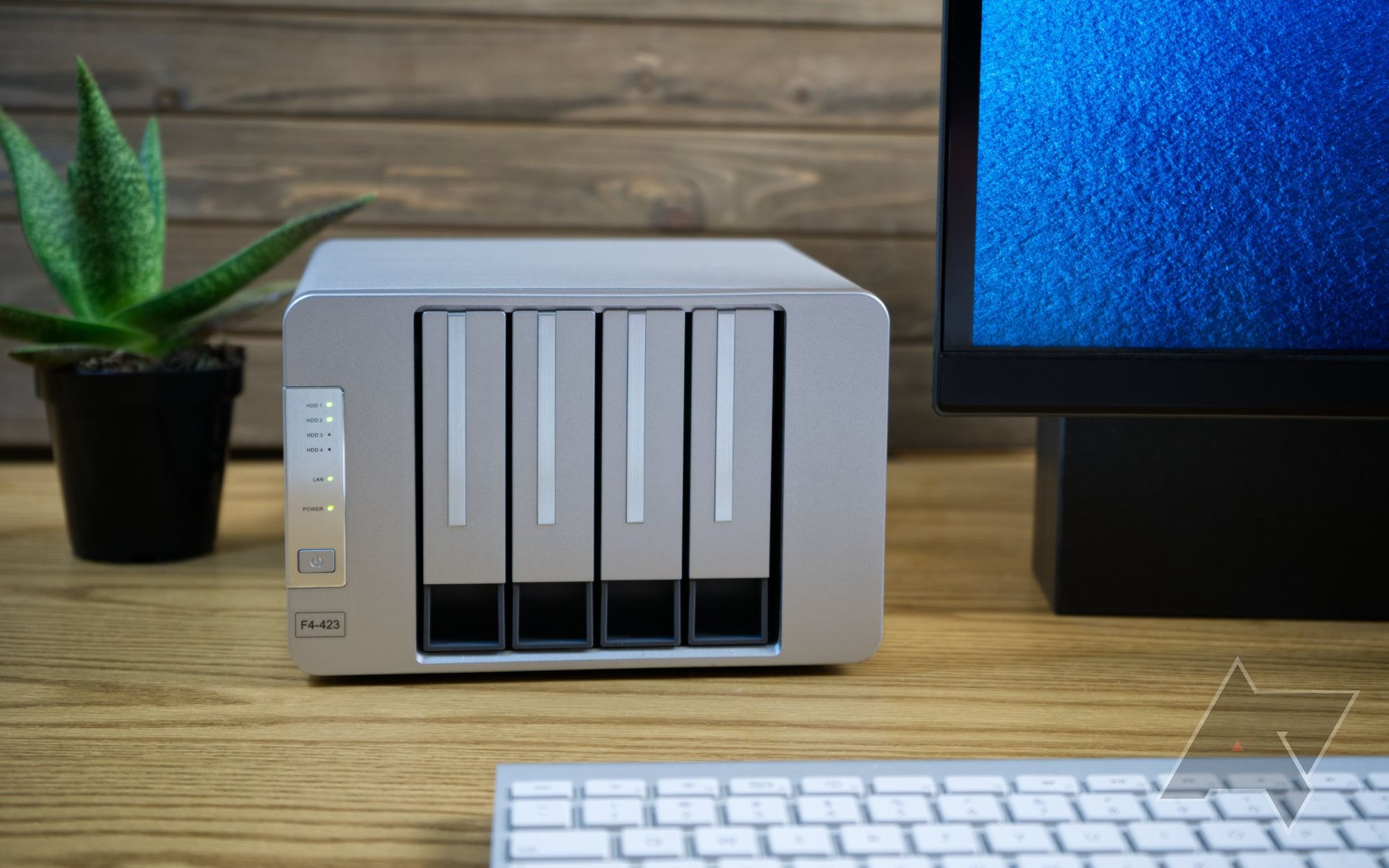
TerraMaster F4-423 NAS review: Streamlined network storage on a budget
Fewer frills and lower cost
TerraMaster more than makes up for this with the specifications on offer. The processor and RAM make it a great option for running Plex Media Server, storing files, and even recording surveillance footage from security cameras. The HDMI port cannot be used, which is a shame, but the ability to install up to 32GB of RAM and utilize M.2 SSDs for caching makes this a very capable enclosure.
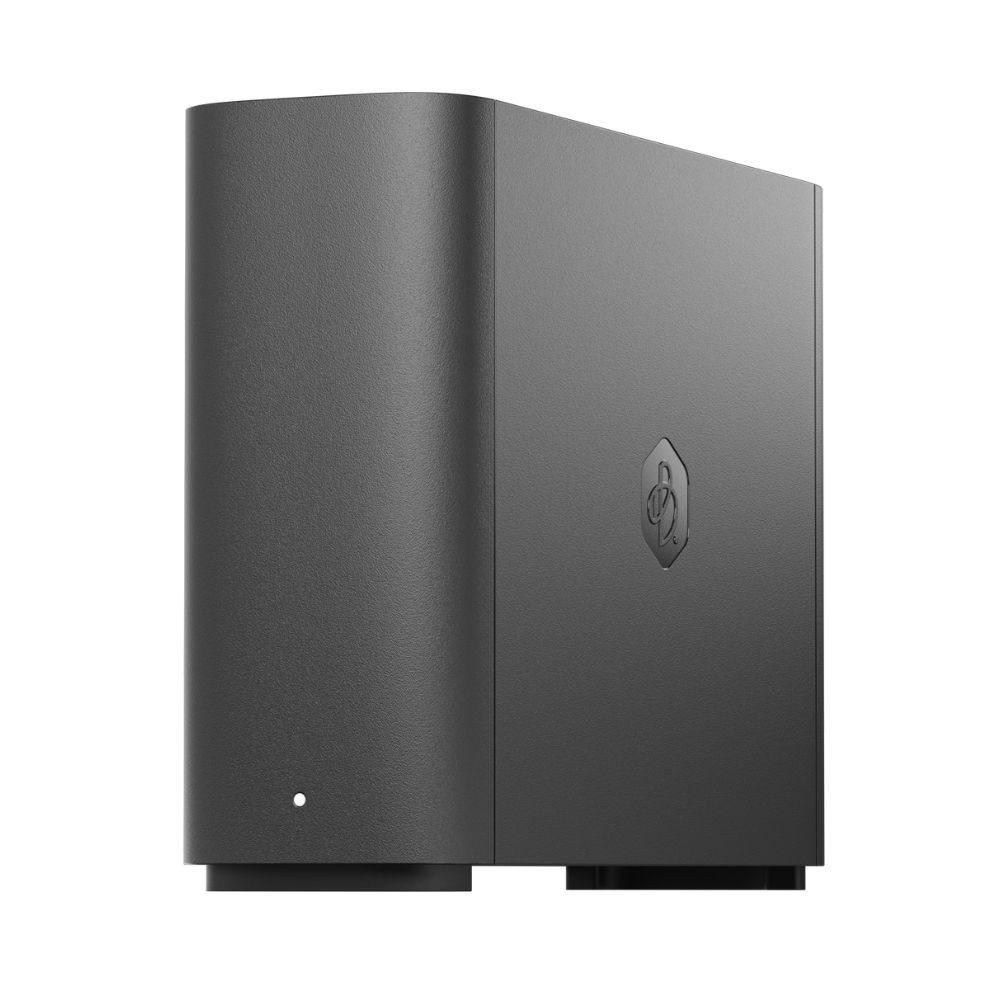
Synology BeeStation
NAS without the fuss
The Synology BeeStation is a simple cloud and file storage solution made for home use. It includes 4TB of storage and is ready to run out of the box. The device’s limitation is that its operating system doesn’t offer apps, and the capacity can’t be increased.
- Synology made
- Fast to deploy
- 4TB of storage included
- No video streaming
- Drive can’t be swapped out
With the same processor and memory as the Synology DiskStation DS233j, the BeeStation has enough resources to serve files and sync Cloud services to home network installation. As an alternative to a complete Synology DiskStation NAS architecture, Synology honed the BeeStation to be a basic NAS with its own pre-installed 4TB drive and BSM operating system.
Synology client software allows folders to be synced to the BeeStation and other systems, including Windows, Apple Mac, and Android devices. And, as you might expect with Synology, the solution is highly polished and ready to go out of the box.
The BeeStation might be less ideal because the internal storage can’t be upgraded, though external USB drives can be added. The BSM operating system doesn’t have user-installable apps like DSM, and other than the two BeeFiles and BeePhoto tools, there isn’t any additional web-based functionality. The BeeStation needs DNLA media serving and a BeeVideo application, but Synology hasn’t delivered these yet or indicated that they will be coming.
What the BeeStation offers is a simple-to-deploy NAS solution that can centrally sync files from multiple devices and also keep a local copy of Cloud stored files from Google Drive, DropBox, or OneDrive. Those who need more functionality than that should consider alternatives, including those from Synology that run DSM and have drive bays.

Asustor Drivestor 2 Lite (AS1102TL)
Classy NAS for growing later
The Asustor Drivestor 2 Lite is an affordable dual-bay NAS with almost identical limitations to similar NAS from Synology and TerraMaster. It lacks a 2.5GbE LAN port, even if the latest ADM 4.0 operating system has a decent app selection.
- Inexpensive
- ADM 4.0 OS
- Takes up to two 18TB drives
- No HDMI port
- Only 1GbE LAN port
Built around the same Realtek RTD1619B 1.7GHz quad-core processor and 1 GB of RAM as the Synology DS223j and TerraMaster F2-214, the Asustor Drivestor 2 Lite AS1102TL is a highly flexible solution. This unit has an SoC that can transcode video in real-time and enough general horsepower to handle multiple jobs simultaneously. While you can’t upgrade the 1GB of DDR4 memory, it’s enough space for at least a couple of applications, and ADM 4.0 offers a good selection these days.
The problem with two-bay NAS is the limitations of RAID with two drives and how to expand them. However, Asustor offers the AS6004U and now AS5004U four-bay expansion boxes to allow this NAS to use up to six drives. In addition to being unable to upgrade the memory, this design’s other weaknesses are that it only has a 1GbE LAN port and no HDMI out. While some four-bay NAS offer 2.5GbE, the Asustor Drivestor 2 Lite AS1102TL, like the Synology DS223j and TerraMaster F2-214, is limited to a 1GbE LAN.
Those who want 2.5GbE LAN from this brand need to consider the NIMBUSTOR 2 Gen2 (AS5402T), which is twice the price.
The Asustor Drivestor 2 Lite AS1102TL is a good choice. It is a capable NAS that isn’t a significant investment and has some room to grow through external expansion.
Choosing the best NAS for home
Picking the right NAS for your home is largely dictated by how much you’re willing to spend. NAS enclosures can cost anywhere from $100 up to $2,000 and beyond, and it’s easy to spend that much even if you’re building your own NAS system starting from a case.
A two-bay NAS with an Intel Celeron processor is usually more than enough for even busier households with multiple family members simultaneously accessing data stored on the server or apps. We’ve tested countless enclosures and found many released within the last few years to be more than adequate for the home. If we had to select one to recommend above the rest, it would be the Synology DiskStation DS224+.
This is a very capable enclosure with an Intel Celeron processor, upgradable DDR4 RAM with 2GB from the factory, access to Synology’s excellent DSM operating system, and two 1GbE network connections. Competitors like TerraMaster may offer NAS with 2.5GbE ports in similarly priced enclosures, but two 1GbE links are still good enough for most home networks. We wouldn’t envision this being an issue with most homes, making this our go-to recommendation for buying a two-bay NAS for your family to enjoy.

Synology DiskStation DS224+
The Synology DiskStation DS224+ is the direct successor to the popular DS220+, which was praised for the value it offered to consumers looking to buy their first enclosure. The DS224+ has an Intel Celeron processor, 2GB of DDR4 RAM, and support for Synology’s excellent DSM operating system and catalog of apps.




